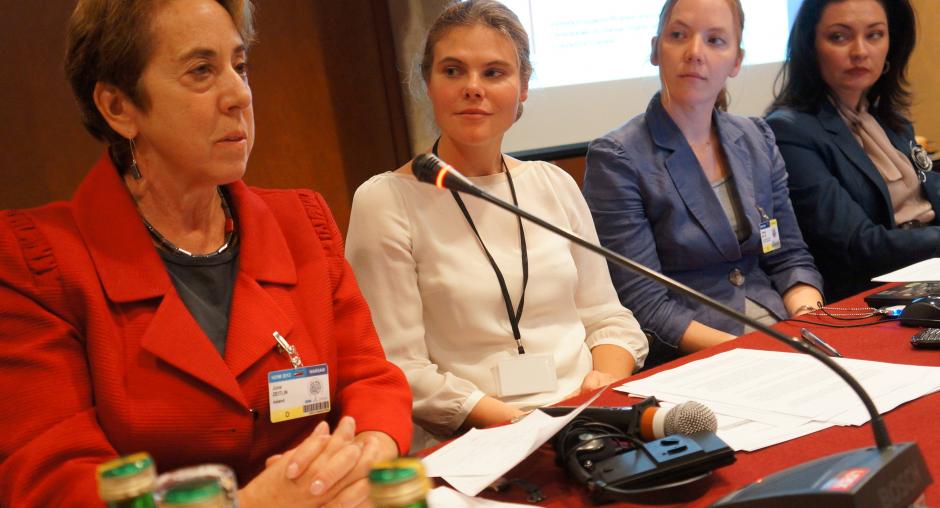OSCE and partners call for enhanced co-ordination in combating violence against women

Greater co-operation among international and national organizations is needed to prevent and combat violence against women, said participants at a meeting on the margins of the OSCE’s annual human rights conference in Warsaw on 28 September 2012.
“Violence against women continues to be one of the most widespread and pervasive human rights violations globally, including in the OSCE region,” said June Zeitlin, the Special Representative of the OSCE Chairperson-in-Office on Gender Issues, at a side event co-organized by the OSCE Office for Democratic Institutions and Human Rights, the OSCE Gender Section, the Council of Europe and UN Women.
“Only a sustained effort among international and national leadership and other stakeholders will create the public awareness and political will needed to provide adequate assistance to victims,” she said.
During the discussion, Johanna Nelles, Programme Adviser at the Council of Europe, presented her organization’s Convention on Preventing and Combating Violence against Women and Domestic Violence, noting that it is the first legally binding instrument in Europe to comprehensively address this issue.
Signatories to the Convention are obliged to improve their legislation, establish specialized support services, raise awareness and allocate sufficient funding in combating violence against women. Twenty-two countries have signed the Convention to date.
“By ratifying the Convention, state parties signal their commitment to addressing this violation of human rights, and assume responsibilities for providing better prevention of violence against women, for offering better protection to victims, and for ensuring higher levels of prosecution of perpetrators,” said Nelles.
Anastasia Divinskaya of UN Women highlighted how her organization has used the Convention to support the development of domestic legislation on preventing and combating violence against women in the OSCE region.
Representatives of civil society organizations and crisis centres also shared their experiences on the provision of support and services to victims and their families.
